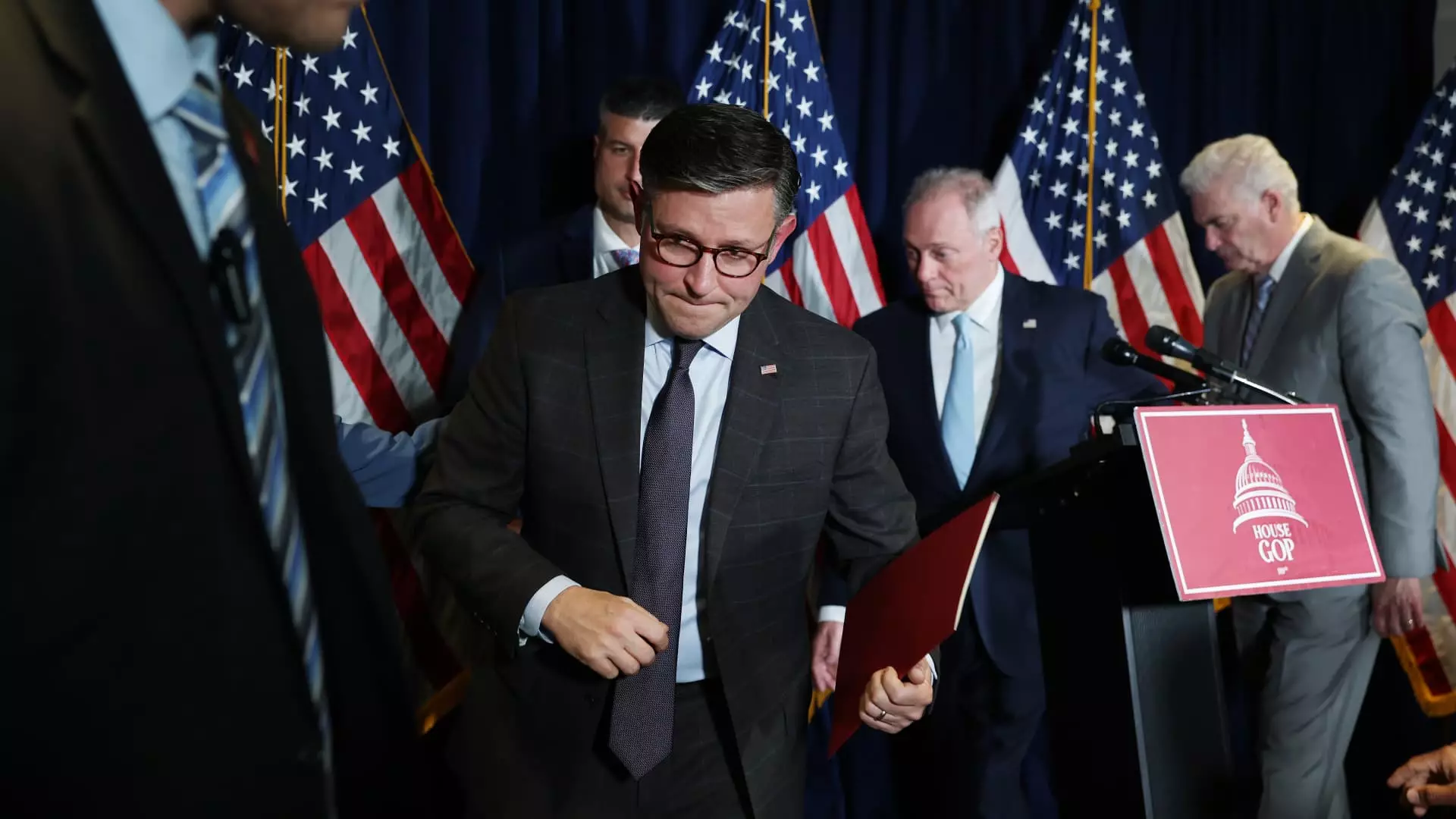At the heart of the recent political chaos lies a stark reality: bipartisan cooperation has become a casualty, replaced by finger-pointing and strategic blame-shifting. House Speaker Mike Johnson’s assertions that Democrats are solely responsible for potential government shutdowns underscore a troubling tendency to frame fiscal stalemates as a matter of partisan morality rather than complex policy negotiation. His claim that Democrats “are risking a shutdown if they don’t drop their demands” simplifies what is inherently a nuanced political process. It suggests unilateral responsibility rather than acknowledging the broader gridlock, systemic polarization, and conflicting priorities that hinder effective governance.
This rhetoric fosters a destructive narrative—one where the party in power is painted as the villain, deflecting attention from the failures of a fractured system that incentivizes scorched-earth tactics over pragmatic compromise. The truth is, the push-and-pull over issues like health care subsidies, security spending, and government funding reveal a profound inability to reconcile diverging interests, compounded by the toxic partisan environment that elevates short-term political wins over long-term national stability.
The Distraction of Partisan Demands and the Real Cost to Americans
The Democrats’ insistence on safeguarding health insurance tax credits symbolizes not just a policy preference but an essential safeguard for millions of Americans. If these subsidies disappear—an impending threat if the funding crisis leads to a shutdown—premiums could soar by up to 75%, hitting rural communities hardest and exacerbating existing disparities in healthcare access. The proposed Republican stopgap bill, designed primarily to address security concerns, notably omits any provisions to extend these vital credits. This omission is more than a political choice; it’s a threat to millions who depend on affordable healthcare.
Yet, the narrative often reduces this complex dilemma to a partisan standoff, framing Democrats’ demands as “unrelated matters” to justify rejecting them. Such framing sidesteps the reality: these subsidies are deeply intertwined with the economic well-being of everyday Americans. To dismiss them as mere bargaining chips is to ignore the tangible human consequences of congressional inaction. The confrontation over these credits is symptomatic of a broader failure—governing driven less by policy integrity and more by political theatrics that endanger the most vulnerable.
The Economic Fallout: A Crisis That Goes Beyond Partisan Lines
The threat of a government shutdown extends beyond immediate political blame; it risks plunging the economy into chaos. Analysts warn that a prolonged shutdown would intensify economic instability, especially in a fragile labor market that has been deteriorating at a rapid pace. The forecast from Deutsche Bank highlights the potential for this crisis to do more damage than previous shutdown episodes, with a negative shock capable of deepening recessionary pressures.
For ordinary Americans, the repercussions are immediate and personal—lost jobs, delayed stimulus, and a decline in consumer confidence. The shutdown’s economic toll magnifies the urgent need for bipartisan cooperation, yet the prevailing atmosphere of ideological rigidity makes consensus elusive. The partisan blame game, therefore, serves as a smokescreen for deeper systemic failures that threaten national economic health and undermine public trust.
The Political Theater: A Self-Perpetuating Cycle of Disillusionment
Both parties are acutely aware of the unpopularity associated with government shutdowns, yet their actions suggest a willingness to gamble with stability to score political points. Democrats, wary of the backlash from past shutdowns, seem cautious about outright confrontation, yet they resist giving in to Republican demands that threaten core social programs. Republicans, meanwhile, leverage brinkmanship to push their security and fiscal priorities, often disregarding the broader societal impact.
This cycle of brinkmanship and blame-shifting is a political dance that leaves the public caught in the crossfire. It fosters widespread disillusionment, eroding the faith in institutions that are desperately needed to function effectively. The failure to prioritize governance and policy solutions over partisan advantage not only jeopardizes immediate needs but also erodes the foundational trust necessary for democracy to thrive.
In a time of escalating economic and social crises, the failure to rise above partisan games is not just irresponsible—it is dangerous. The potential shutdown, with its devastating economic and human costs, underscores the critical need for leadership that is willing to engage in genuine compromise. The American people deserve a government that prioritizes stability and progress over political theatrics. Until the political class recognizes that governing responsibly is the true measure of leadership, the nation remains perilously vulnerable to self-inflicted chaos.


Leave a Reply